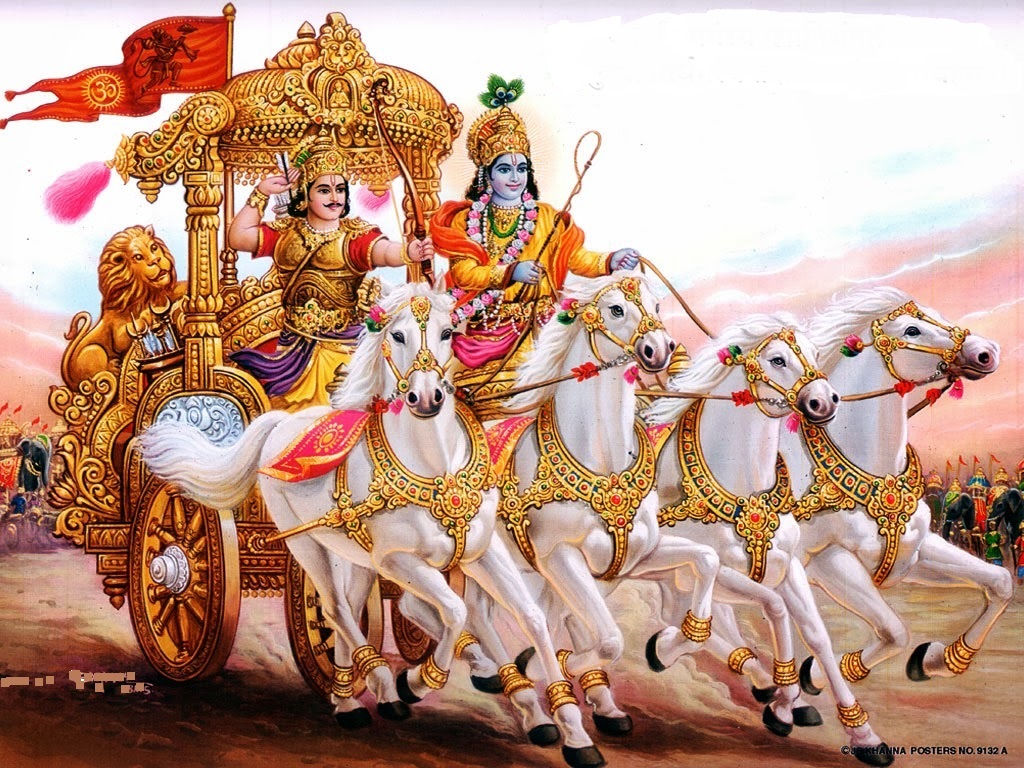The Relevance of the Bhagavadgita to Humanity 4.1 - Swami Krishnananda.
Saturday 04, Apr 2024 06:40.
The Relevance of the Bhagavadgita to Humanity
The First Six Chapters of the Bhagavadgita:
Chapter 4: Stories from the Aranya Parva - 1.
==================================================================================
The Aranya Parva of the Mahabharata is a very vast book. It is the largest book, next to the Shanti Parva, out of the eighteen books of the Mahabharata. All the stories, anecdotes, narrations, mythological descriptions – practically all which we may consider as popular religion – can be seen beautifully pictured in the Aranya Parva of the Mahabharata. It is one of the most interesting treatises, filled with stories of wondrous, miraculous occurrences and the possibilities, secrets, and profundities of creation.
No human being will believe some of the things stated there. They will say that this is not possible, but everything is possible in this creation of God. Nobody believed some centuries back that planes made of tons of metal will fly in the air, but today they do. So we should not be under the impression that we are very wise, or that we know all the features of nature.
I am mentioning one instance of a miracle mentioned in the Mahabharata. The Pandavas were unbefriended in that wilderness. Yudhisthira of the Pandavas, with his queen, had no food to eat. Where is the food in the forest? A rishi told Yudhisthira, “Pray to the Sun for relief of the suffering of hunger.” We will not do that kind of prayer when we are hungry; it makes no sense for us, but it made sense to him. In a touching prayer, Yudhisthira expressed his feelings to the mighty Sun. Now came the miracle. The deity in the Sun emerged out of the orb and offered a vessel, saying, “If food is cooked in this vessel, it shall be inexhaustible.” But a condition was put so that they may not be under the impression that everything was well with them unconditionally. “When your queen eats, the food shall be exhausted. Until she eats, food will always be there. Any number of people can eat from that vessel and the food will be inexhaustibly present.”
Now, can we believe in such a possibility? If we believe in the language of modern science that there is such a thing called the four-dimensional reality, we will accept this truth. It is only in the three-dimensional spatiotemporal world that we can deduct something from something else. In the four-dimensional realm, nothing can be deducted. It is an inexhaustible indivisibility. The full can be taken away from the full, and yet the full only remains: pūrṇāt pūrṇam udacyate; pūrṇasya pūrṇam ādāya pūrṇam evāvasisyate. Even if we take all the food from the vessel, still the food is there as it was. These are wonders.
Today I am not discussing any intricate theme. It is a light vein of a story which you may find very interesting. The Pandavas were getting on with the miracle vessel, the divine bowl offered by the Sun. How can the Sun be so kind to us? I was happy to read a little anecdote in the Kalyana Kalpataru. Kalyana is the magazine of the Gita Press. They narrated a story that actually happened. One gentleman from Europe who was not accustomed to the heat of the Indian sun in summer got sunstroke when he stood in the sun. He could not bear the heat of this summer of India. He had fever, and he took rest and recovered. The next day some brainwave occurred to him. It appears he took in his hand some flowers and holy water, gazed at the mighty brilliance, chanted a mantra, put it down as an offering, and stood there for more hours than he had stood the previous day, and nothing happened to him. He was perfectly all right.
*****
Continued










Comments